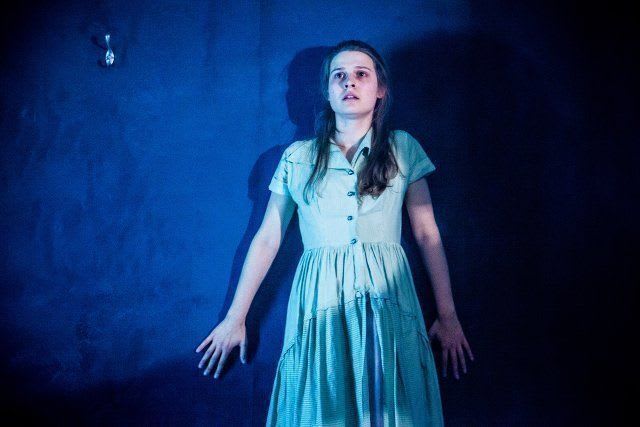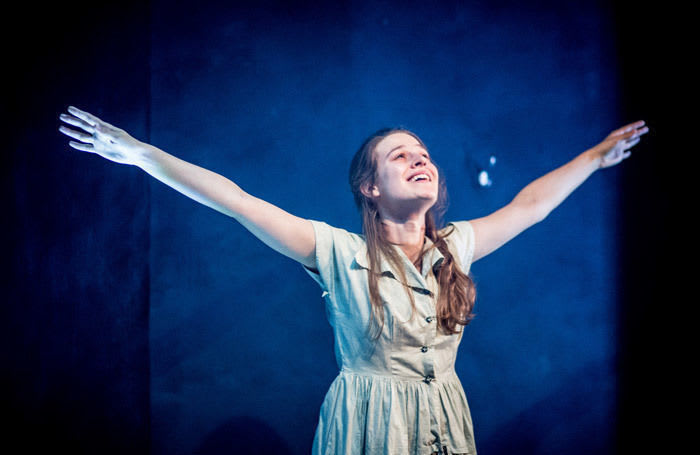Frederick is an important German officer at a Second World War concentration camp in Cordelia O’Neill’s tight, well-constructed No Place for a Woman. His job seems to consist of beating to death and occasionally shooting prisoners to maintain discipline.
His wife Annie (Ruth Gemmell) deserves a party in their nearby home so he plucks from the camp someone to play music and a woman to dance.
He likes the dancer Isabella (Emma Paetz) so much he decides to keep her in the cellar for future use. That is something that irritates Annie who would prefer prisoners are disposed off in the usual way.
We never see Frederick in the play. He is simply the centre of the story told in mostly cross-cutting monologues by Annie and Isabella.
The actors give very fine performances on a minimal set under a mostly darkened stage. The script is fluent and engaging.
The overall story of a concentration camp victim who survives by dancing and becoming the “mistress” of a Nazi officer does seem very familiar and even predictable.
However various theatrical tricks are used to ensure Frederick’s love nest holds our attention. The play opens with Annie and Isabella talking to an unseen figure whose identity is only revealed late in the play. On occasions, to the initial confusion of audience members, the two women stand side by side speaking as if in a dialogue with each other when in fact what they say can be interpreted as simultaneously the words spoken by the women to Frederick and by Frederick to the women.
In a scene whose outcome is one of a number of improbable things happening in the play, Annie meets Isabella in the cellar when Frederick is out and decides on a course of action that some audience members will find hard to believe.
This is a well-paced performance. The love story is told with economy, style and the occasional mood-setting music of the cellist Elliot Rennie.
Perhaps some will claim it as a bleak, fatalistic metaphor about the extreme subordination of women. Others will doubt it has anything significant to say about gender, or anything else. Fascism and the Holocaust are simply the story’s props and costume. The play is entertaining but it ought to be so much more.


